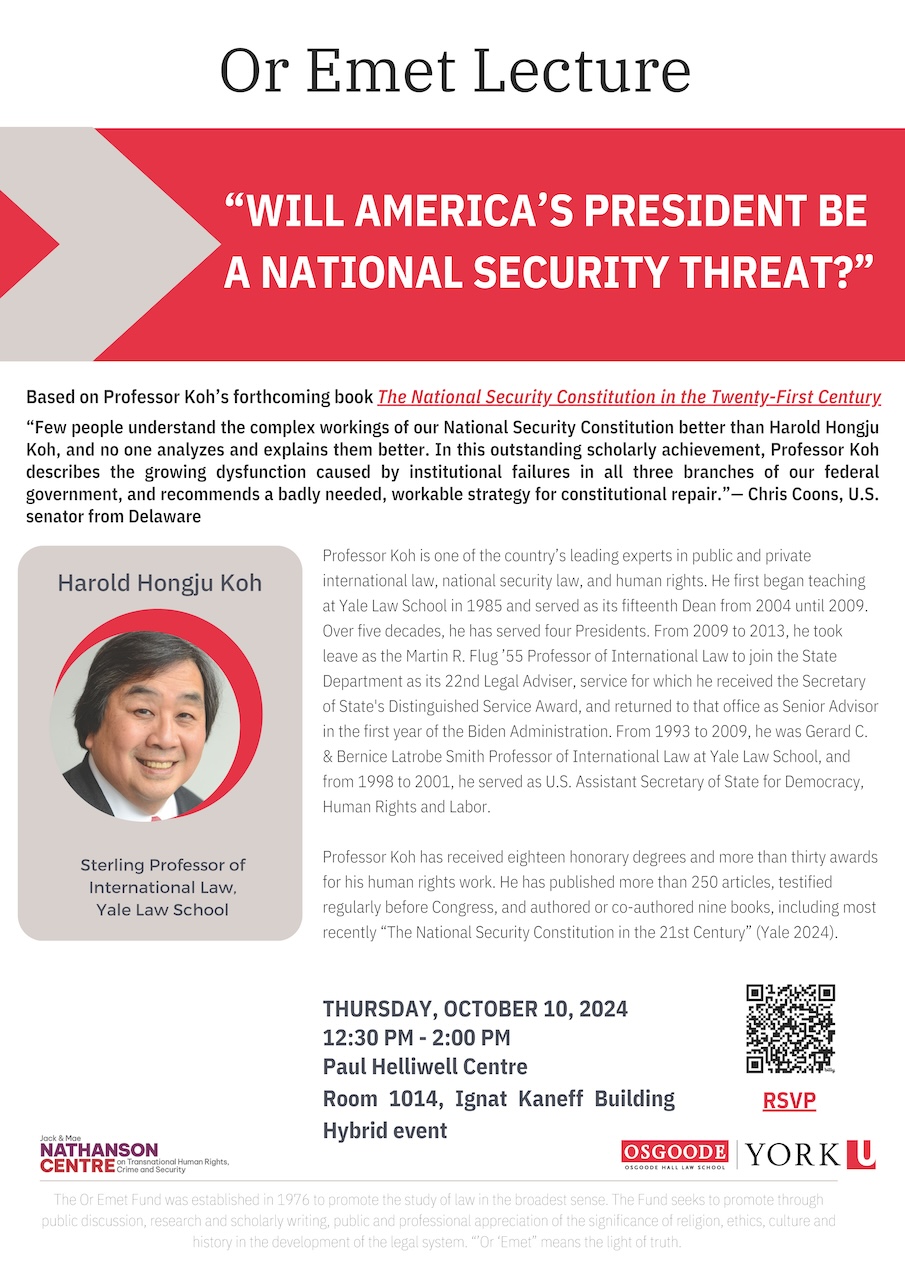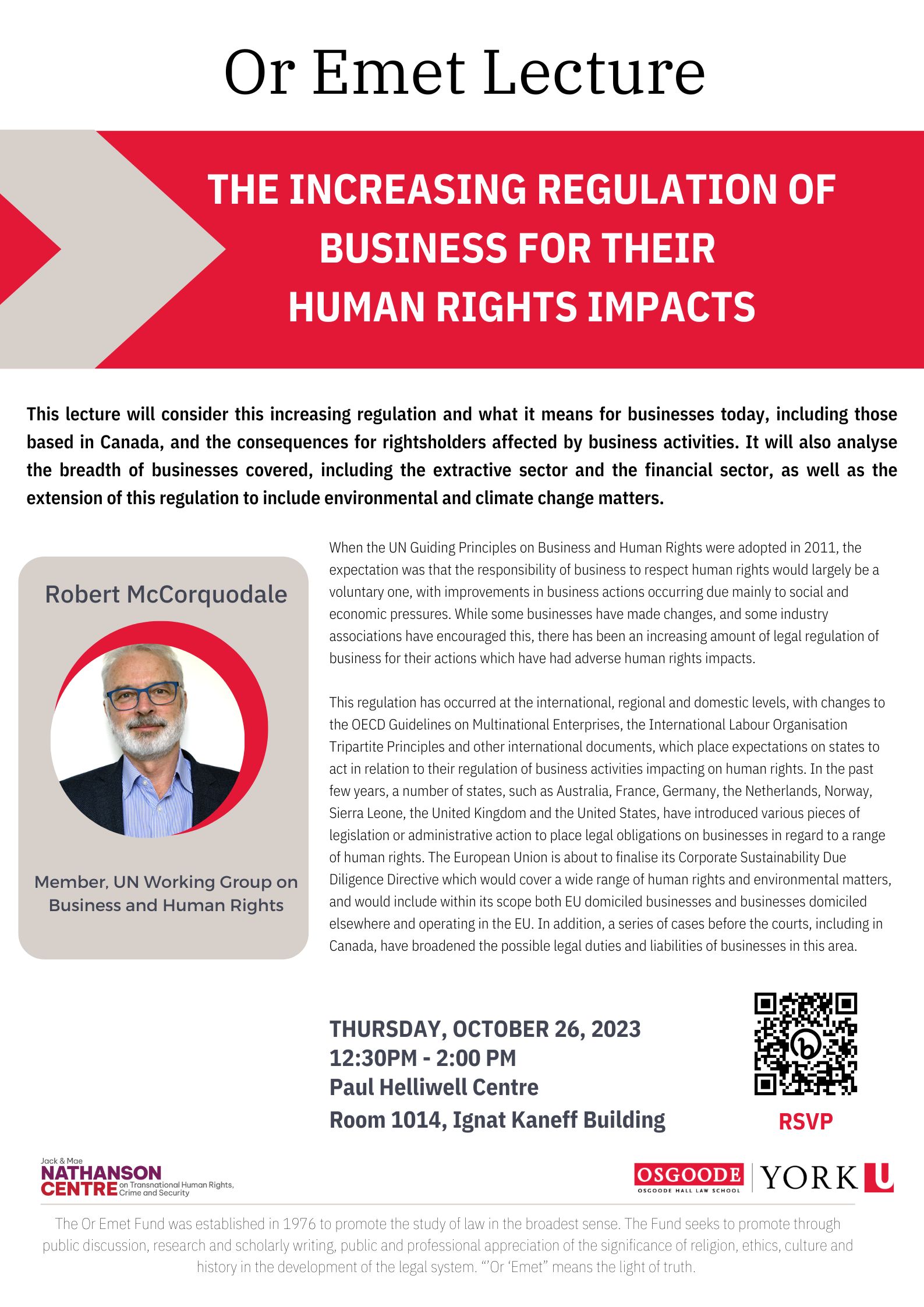Based on Professor Koh’s forthcoming book, The National Security Constitution in the Twenty-First Century
“Few people understand the complex workings of our National Security Constitution better than Harold Hongju Koh, and no one analyzes and explains them better. In this outstanding scholarly achievement, Professor Koh describes the growing dysfunction caused by institutional failures in all three branches of our federal government, and recommends a badly needed, workable strategy for constitutional repair.” — Chris Coons, U.S. senator from Delaware.
Professor Koh is one of the country’s leading experts in public and private international law, national security law, and human rights. He first began teaching at Yale Law School in 1985 and served as its fifteenth Dean from 2004 until 2009. Over five decades, he has served four Presidents. From 2009 to 2013, he took leave as the Martin R. Flug ’55 Professor of International Law to join the State
Department as its 22nd Legal Adviser, service for which he received the Secretary of State’s Distinguished Service Award, and returned to that office as Senior Advisor in the first year of the Biden Administration. From 1993 to 2009, he was Gerard C. & Bernice Latrobe Smith Professor of International Law at Yale Law School, and
from 1998 to 2001, he served as U.S. Assistant Secretary of State for Democracy, Human Rights and Labor.
Professor Koh has received eighteen honorary degrees and more than thirty awards for his human rights work. He has published more than 250 articles, testified regularly before Congress, and authored or co-authored nine books, including most recently “The National Security Constitution in the 21st Century ” (Yale 2024).

